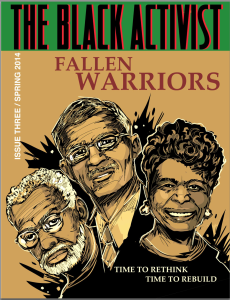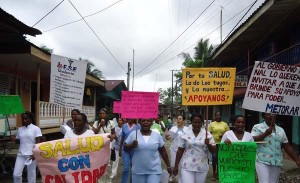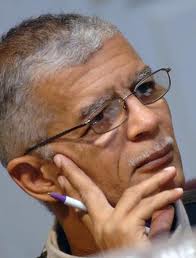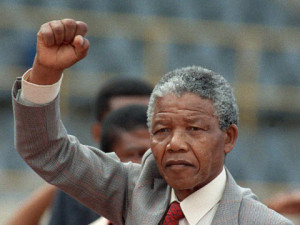 Issue Number 3 Spring 2014 is available at http://jblun.org/ Published by the Black Left Unity Network(BLUN), this issue has powerful tributes to fallen freedom fighters. These tributes to Amiri Baraka, Chokwe Lumumba, Rod Bush, Jayne Cortez and Cheryll Greene lead the editors to the issues’ subtitle, Time to Rethink, Time to Rebuild. The journal features reports from Black Workers for Justice, Project South, Chicago Anti-Eviction Campaign, and Malcolm X Grassroots Movement among others. BLUN activists sold hundreds of copies at the Jackson Rising Conference in Mississippi last weekend. Young and old social justice fighters were excited to see such a publication. The next issue will focus on Women and the struggle against patriarchy.
Issue Number 3 Spring 2014 is available at http://jblun.org/ Published by the Black Left Unity Network(BLUN), this issue has powerful tributes to fallen freedom fighters. These tributes to Amiri Baraka, Chokwe Lumumba, Rod Bush, Jayne Cortez and Cheryll Greene lead the editors to the issues’ subtitle, Time to Rethink, Time to Rebuild. The journal features reports from Black Workers for Justice, Project South, Chicago Anti-Eviction Campaign, and Malcolm X Grassroots Movement among others. BLUN activists sold hundreds of copies at the Jackson Rising Conference in Mississippi last weekend. Young and old social justice fighters were excited to see such a publication. The next issue will focus on Women and the struggle against patriarchy.
Editorial:
Memory and power: When warriors fall, it’s time to rethink and rebuild
The reality of life is contained within the road traveled between life and death in the context of the social forces of history. One way to read history is through generations. Fanon points to this is the famous quote from Wretched of the Earth: “Each generation must, out of relative obscurity, discover its mission, fulfill it, or betray it.” There have always been revolutionary individuals and groups, but some generations have been able to discover their revolutionary mission. This is partly as objective possibility, and partly as subjective will.
We can look back to the 1930’s and the 1960’s. These are two decades when a critical generation threw themselves into movements. This involved radical ideological consciousness for social transformation. In the 1930’s it was to rise up against a capitalist crisis and emergent fascism. People were being forced into poverty fearing political repression and global racism. In the 1960’s the uprising was in the context of economic expansion. There was great optimism, rising expectations and the belief that social justice could be achieved under capitalism. This includes both within imperialist countries and for national liberation in the third world.
But there were some revolutionary people and groups in the 1960 that understood it would be impossible to achieve social justice within an imperialist country. Social justice was going to be achieved as a result of ending capitalism via a socialist transformation. A new reality check was forced on people when the two great social justice icons of the 1960’s were murdered: Malcom X (1925-1965) and Martin Luther King (1929-1968). The system was once again discovered to be rotten to its core.
These 1960’s Black liberation activists are now the elders of the movement. They are the living libraries of the Black liberation movement. Many academics and journalists are making every effort they can to grab this knowledge to create books, to turn this knowledge into commodities and advance careers. What is missing are autobiographical accounts that can be used as manuals for training new generations to become movement activists. Good examples of this are the Autobiography of Malcolm X, and James Foreman’s The Making of a Black Revolutionary. In any case we need books not just about glorifying the movement, but to learn lessons from them to help rebuilding the movements of today.
We have recently lost key activists, elders from the 1960’s revolutionary movements. The BLUN honors them and calls for all movement centers and groups to have discussions about them so they can be models for the young activists now and those yet to step forward. There are many more left and it’s time to learn from them before they also make their transition from life into death. Read more







